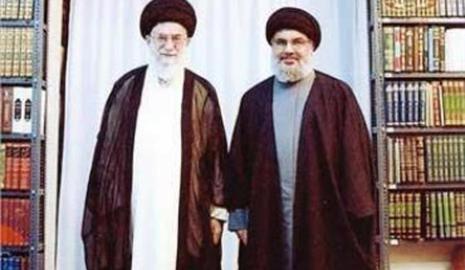As part of a speech declaring victory in Syria’s civil war on September 12, Lebanese Hezbollah’s leader Hassan Nasrallah reminded his audience of a conversation he had with Iran’s Supreme Leader Ali Khamenei at the outset of the war six years ago. “If we don’t fight in Damascus, we will have to fight in [Lebanon],” Nasrallah apparently told Khamenei, who agreed and added: ‘Not only in these areas, but we also have to fight in Kerman, Khuzestan and Tehran.”
Since that conversation with Nasrallah, Ayatollah Khamenei has made the argument that fighting in Syria would prevent war from spilling into Iran more than once. “Had we not stopped the instigators in Syria, we would have been forced to stop them in Tehran, Khorasan and Isfahan,” he said in a speech on January 5, 2017.
Other officials have echoed this. “We call the fight in Syria a preventive war,” Mehdi Mohammadi, former member of the secretariat of Iran’s Supreme National Security Council, said in an interview in the winter of 2016. “If Iran leaves this conflict to itself then soon enough it [will have] to confront ISIS at its own borders.”
Wrapped up in these statements are the concepts of “preventive war” and “strategic depth.” In the interview, Mohammadi defined “strategic depth” as putting distance between a war and a country’s borders. “Iran’s strategy has been to extend its strategic depth by relying on the [expeditionary] Quds Force,” he said.
These concepts have become very controversial in Iran in recent years. Nevertheless, they have served as one of the main pillars of the Islamic Republic’s propaganda aimed at justifying its military intervention in Syria. Again, it's the idea that if Iran doesn't have a role in Damascus, it will later have to defend itself in Tehran.
On August 20, 2017, General Ghasem Soleimani, commander of the Quds Force and Iran’s top player in Syria, addressed the disagreements over Iran’s intervention in Iraq and Syria. “Some friends at high levels both inside and outside Iran said ‘don’t go into Syria and Iraq and defend the revolution in a respectable way,’” he said in a speech. “One person said ‘this means that we have to go in and defend a dictator [Syrian President Bashar al-Assad].’ But the Supreme Leader said: ‘do we look at who is a dictator and who is not when we have relations with all other countries? We look after [our own] interests.’”
The Religious Veneer
This is a significant point. The Islamic Republic often tries to sell the Syrian intervention as a key defense of holy Shia sites in Syria, and honors expeditionary fighters as “Defenders of the Shrine.” But as General Soleimani’s statements show, the Supreme Leader’s main reason for entering the Syrian conflict was Iran’s political and military interests as he sees them. The religious veneer is mostly an attractive packaging for selling the war to the public, and for motivating soldiers.
But some Iranians do not agree with Khamenei’s view. “Instead of political intervention to prevent escalation of the crisis, to prevent the destruction of Syria and to prevent the deaths of hundreds of thousands, Iran intervened militarily and gave up its political effectiveness,” Mostafa Tajzadeh, a reformist politician and acting interior minister under President Mohammad Khatami, told the weekly Rouberou on October 31, 2016. He characterized Iranian intervention in Syria as “high in cost and low on return” and said “preventive war in effect means extending war.”
Despite this opposition, those who wield power in Iran and the generals who control Iran’s diplomacy in Syria and the rest of the Middle East are bent on extending Iran’s influence with the help of paramilitary groups and through proxy wars.
“Today’s wars in the region are rehearsals for the wars that we must be prepared for when the promised day arrives,” said General Mohammad Ali Jafari, commander of the Revolutionary Guards, on February 6, 2016. The “promised day” refers to the time when the Shia messiah, the “Hidden Imam,” will return. Keeping the power of this religious rhetoric in mind, it is reasonable to expect Iran’s military intervention in Syria — but also in Lebanon, Palestine, Yemen, Bahrain and Saudi Arabia and the rest of the Middle East — to continue. Proponents of such views believe they are engaged in a holy war and this is the logic that guides them.
visit the accountability section
In this section of Iran Wire, you can contact the officials and launch your campaign for various problems



























comments